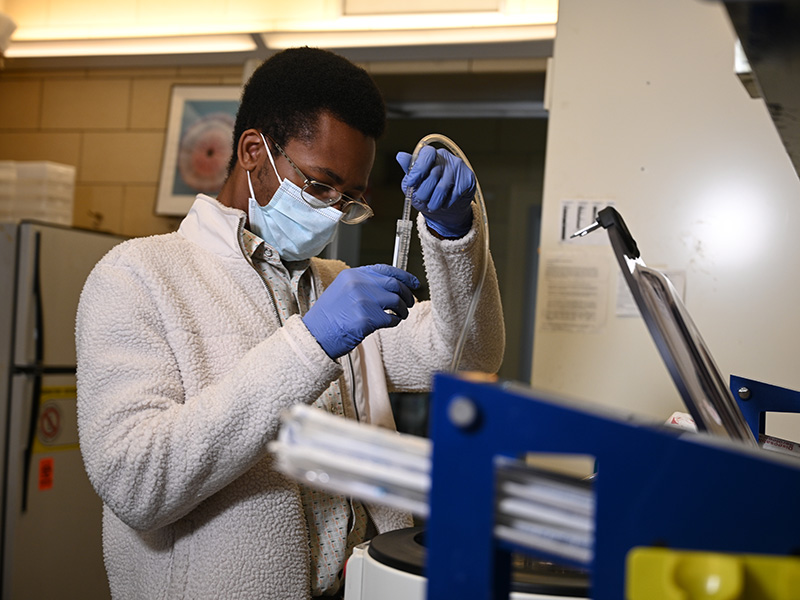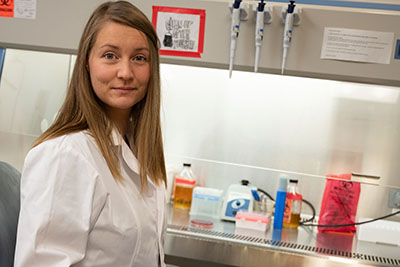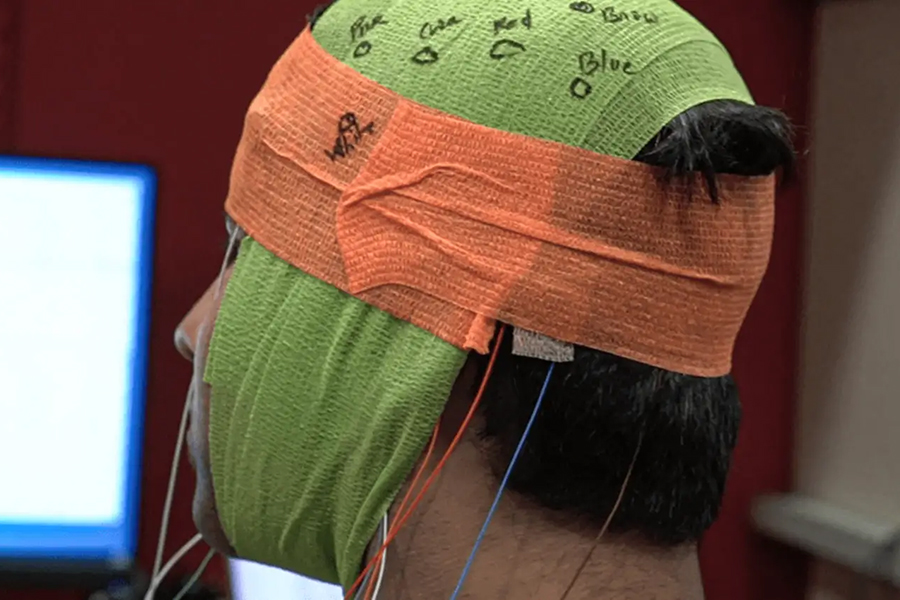Your support will help us lead the scientific revolution.
The Richard King Mellon Hall of Sciences will accelerate the work of MCS faculty, staff and students from:
Department of Biological Sciences • Department of Chemistry • Ray and Stephanie Lane Computational Biology Department • Neuroscience Institute
The Richard King Mellon Hall of Sciences will create the physical environment for Mellon College of Science's vision to revolutionize the science of the future through cross-disciplinary collaboration and innovation.
 The Hall of Sciences will place chemistry and biological sciences researchers alongside neuroscience, machine learning, language technologies and computational biology faculty to facilitate collaboration. Together, they will accelerate and enhance discovery in the foundational sciences with real-world impacts through computation, engineering, AI and data analytics. The future of science will be created here.
The Hall of Sciences will place chemistry and biological sciences researchers alongside neuroscience, machine learning, language technologies and computational biology faculty to facilitate collaboration. Together, they will accelerate and enhance discovery in the foundational sciences with real-world impacts through computation, engineering, AI and data analytics. The future of science will be created here.
With the new modern labs, classrooms and flexible environments in the Hall of Sciences, MCS will be uniquely positioned to prepare students for their futures as 21st century scientists; elevate teaching and learning in the college; and empower researchers to meet emerging societal needs and new challenges in their disciplines.
The Hall of Sciences is a key component of the university’s decade-long future of science initiative, which will lead to groundbreaking innovations that will benefit all of humankind. In addition to the Hall of Sciences, the university is investing in research of the future and the world’s first academic cloud lab.
“Bringing together our complementary strengths in the foundational sciences with artificial intelligence, machine learning, data science and engineering, we are preparing the next generation of scientists to address society’s most urgent challenges from climate change to chronic disease.”
Theresa mayer, vice president for research
Latest News from the Mellon College of Science

Bridges Lab Looks to Unlock Secrets of Bacteria Communication
Disease-causing germs and waterborne microbes bunched together in communities known as biofilms can be harmful in pipes. As solo swimmers, those same bacteria can be innocuous. Drew Bridges, assistant professor of biological sciences, investigates how bacteria respond to extracellular sensory information to make developmental decisions.

Mueller Brown Studies How Pneumococcal Bacteria Communicate
Karina Mueller Brown's work sometimes follows her home. The recent Ph.D. graduate in biological sciences studies Streptococcus pneumoniae, a pathogen that lives in the nasal passages of nearly half of all children, including — most likely — Mueller Brown's young daughter.

New Hope for People Living with Paralysis after Stroke
Technology developed by Douglas Weber, the Akhtar and Bhutta Professor of Mechanical Engineering and the Neuroscience Institute at Carnegie Mellon University, in collaboration with the University of Pittsburgh is offering new hope for people living with impairments that would otherwise be considered permanent.